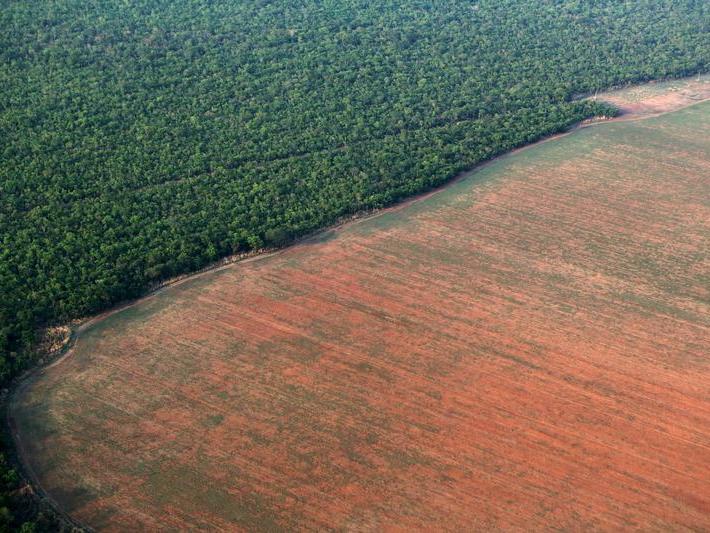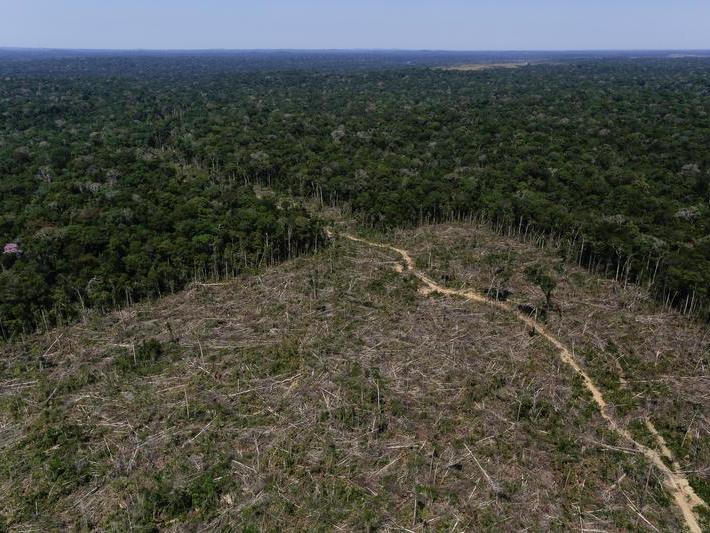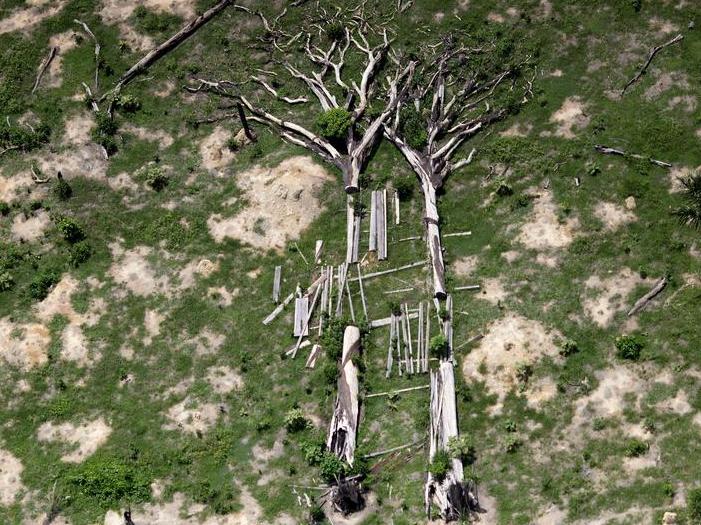Brazil reveals highest deforestation figures in a decade as activists warn Bolsonaro will make issue worse
Illegal logging and agriculture creeping into jungle land blamed for devastating rise

Your support helps us to tell the story
From reproductive rights to climate change to Big Tech, The Independent is on the ground when the story is developing. Whether it's investigating the financials of Elon Musk's pro-Trump PAC or producing our latest documentary, 'The A Word', which shines a light on the American women fighting for reproductive rights, we know how important it is to parse out the facts from the messaging.
At such a critical moment in US history, we need reporters on the ground. Your donation allows us to keep sending journalists to speak to both sides of the story.
The Independent is trusted by Americans across the entire political spectrum. And unlike many other quality news outlets, we choose not to lock Americans out of our reporting and analysis with paywalls. We believe quality journalism should be available to everyone, paid for by those who can afford it.
Your support makes all the difference.Deforestation in Brazil has risen to its highest level in a decade, with 7,900 sq km of the Amazon rainforest felled just in the last 12 months.
New figures released on Friday by Brazil’s government show deforestation has risen by 13.7 per cent since the same time last year.
Environmental experts have blamed the rise on illegal logging and on agriculture creeping into land previously dominated by the jungle.
Deforestation is a key cause of global warming and accounts for around 15 per cent of annual emissions of heat-trapping gases, such as carbon dioxide.
Its impact on emissions is similar to that of the transport industry.
The practice is particularly devastating in the Amazon, as scientists consider the forest to be a key “carbon sink”, meaning it is one of the few places in the world which absorbs large amounts of the gases responsible for global warming.
The jungle is also rich in biodiversity, containing billions of species yet to be studied.

Edson Duarte, Brazil’s environment minister, said in a statement that illegal logging was the main reason for the spike in deforestation levels.
He called on the government to increase its policing of the Amazon rainforest.
The states of Para and Mato Grosso have been particularly affected by deforestation, according to the report.
Most of the country’s grains are produced in Mato Grosso, which is at the heart of Brazil’s booming soybean industry.

Brazil‘s Climate Observatory said in a statement that the increase was not a surprise.
The network of non-governmental organisations said Brazil’s growing commodities sector was also contributing to the issue, with forests being destroyed as farmers expand their territory.
Marcio Astrini, from Greenpeace Brazil, said the country’s government had not done enough to combat deforestation.
He blamed recent policy moves, which reduced the area of forest under federal protection, for fuelling the environmental destruction.
Both Greenpeace Brazil and the Climate Observatory said they were worried deforestation would increase after Jair Bolsonaro, Brazil’s president-elect, takes office in January.
The far-right politician has previously attacked Brazil’s environmental protection agency and is a strong supporter of the country’s agriculture industry.
Despite the worrying data, current levels of deforestation remain well below figures recorded in the early 2000s, before the Brazilian government began combatting the practice.
In 2004 for example, over 27,000 sq km of forest were cleared, an area approximately the size of Haiti.
Additional reporting by agencies
Join our commenting forum
Join thought-provoking conversations, follow other Independent readers and see their replies
Comments